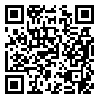دوره 12، شماره 5 - ( 1400 )
جلد 12 شماره 5 صفحات 237-205 |
برگشت به فهرست نسخه ها
1- Associate Professor, Department of English Language Teaching, Tarbiat Modares University, Tehran, Iran ، h.allami@modares.ac.ir
2- PhD Candidate, English Department, Faculty of Languages and Literature, Yazd University, Yazd, Iran
3- MA, English Department, Faculty of Languages and Literature, Yazd University, Yazd, Iran
2- PhD Candidate, English Department, Faculty of Languages and Literature, Yazd University, Yazd, Iran
3- MA, English Department, Faculty of Languages and Literature, Yazd University, Yazd, Iran
چکیده: (1641 مشاهده)
Standard political discourse is replete with ambiguity and vagueness. Politicians frequently use vague language to hide their inadequate knowledge, show their low interest in the issue, and/or evoke emotion. This study reports on a qualitative content analysis of vagueness in two Iranian presidents' political interviews within a pragmalinguistic and sociopolitical paradigm. The data consisted of nine question-answer exchanges extracted from seven internationally live broadcast interviews. A total of 57 instances of vague language use were analyzed in terms of 21 pragmalinguistic vagueness strategies. Implications are that vagueness in political discourse is motivated by a multiplicity of factors such as face management, sociopolitical and situational adaptation, conflict avoidance, and personal characteristics of the interviewers and the respondents. Vagueness was also found to be a sign of diplomatic prudence or wisdom.
| بازنشر اطلاعات | |
 |
این مقاله تحت شرایط Creative Commons Attribution-NonCommercial 4.0 International License قابل بازنشر است. |




